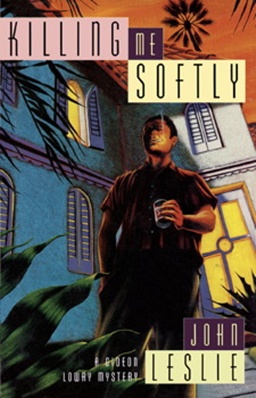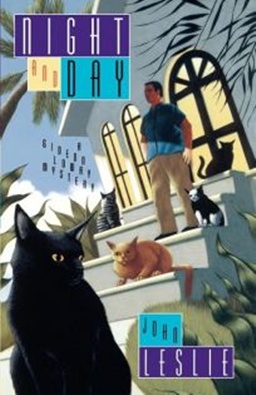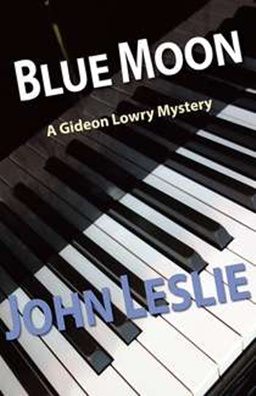The Public Life of Sherlock Holmes: The Key West Private Eye – Gideon Lowry
 As I’ve posted here at Black Gate, John D. MacDonald, author of the Travis McGee series (and much, much more) is my favorite writer. And I believe, one of the greatest American writers of the twentieth century, in any genre. His is the pre-eminent name in the subcategory of ‘Florida writers.’ Randy Wayne White’s Doc Ford, a marine biologist who lives in a stilt house, is McGee’s successor. I think White is a top-notch writer and I certainly recommend that series.
As I’ve posted here at Black Gate, John D. MacDonald, author of the Travis McGee series (and much, much more) is my favorite writer. And I believe, one of the greatest American writers of the twentieth century, in any genre. His is the pre-eminent name in the subcategory of ‘Florida writers.’ Randy Wayne White’s Doc Ford, a marine biologist who lives in a stilt house, is McGee’s successor. I think White is a top-notch writer and I certainly recommend that series.
I’m not as up on this group as I used to be, but Carl Hiassen is probably the best-known Florida scribe these days. His biting satire and hilarious situations can be laugh-out-loud reading. In a similar vein to Hiassen are the works of Lawrence Shames. He also pokes fun at the absurdities of Florida life with a series of mostly unconnected books set in Key West. I recently read Virgin Heat and Mangrove Squeeze and got some chuckles, though his stuff is a bit raunchy for me.
There are others, of course, like Thomas McGuane (Jimmy Buffett’s brother in law), Geoffrey Norman, Lawrence Sanders, James W. Hall and John Lutz, to name a few; covering a wide range of styles. Today, I’m going to talk about John Leslie and his hard-boiled PI, Gideon Lowry.
There are only four books in the series, and it appears that no more will be forthcoming. This is a shame, because Lowry is an interesting character. Killing Me Softly was published in 1994 and Lowry is in his fifties. Except for a two-year vacation to Korea, paid by Uncle Sam, he has spent his entire life in Key West. He’s a true-blue Conch. And that matters, as the sense of tribe plays a big part of the series. Whether or not someone was one of “our people” was a major factor in how you responded to situations regarding them. But unlike his father, Lowry doesn’t simply identify with natives and locals.
Both his parents are dead (this is not a major spoiler), but both of them play a significant role in Lowry’s make-up and how he approaches life. His brother, a slick politician up in Tallahassee, is quite different from Lowry and that helps define the character in the first book.
Lowry has a small office in his run-down home on Duval Street, where commercial interests have been trying to buy him out for years, but he resists. The family that rules Key West wants to build an ugly hotel directly behind his house. Lowry doesn’t pliably ‘move with the times’ and gets around town on his bicycle. Though he breaks out the Buick Electra when he has to go a bit further.
He’s an alcoholic who doesn’t get a lot of detective work. You’ve run into that stereotype before. But Lowry is also an accomplished pianist and there are times he earns more money from tickling the ivories in Key West bars than he does at being a PI. The Key West setting, the complex character and the musical element all combine for an interesting detective stew.
 Book one has a Ross MacDonald feel, as a woman hires Lowry to find out who killed her sister over three decades before. As is usually the case, there are people who don’t want a private investigator digging into the past, and when Lowry finally uncovers the truth, it has a seismic impact. The sense of place is strongly established in this first book and is truly one of the series’ strengths. The Key West of the tourists is not the same as the one of the natives. Even the contrast between the two crime families typifies the locale.
Book one has a Ross MacDonald feel, as a woman hires Lowry to find out who killed her sister over three decades before. As is usually the case, there are people who don’t want a private investigator digging into the past, and when Lowry finally uncovers the truth, it has a seismic impact. The sense of place is strongly established in this first book and is truly one of the series’ strengths. The Key West of the tourists is not the same as the one of the natives. Even the contrast between the two crime families typifies the locale.
In the follow-up, Night and Day (that’s the title of Cole Porter’s best-known song. Fred Astaire and Frank Sinatra famously covered it), events take place during Hemingway Days. A writer working on an unfinished Hemingway manuscript is killed and events transpire. As with the first book, the Key West locale becomes a character in its own right; not just physical, but culturally and socially.
Having an older protagonist also sets the series apart. There’s a young, attractive bartender at one of the places he plays piano. But there’s no romantic possibility – she likely sees him as more of a father figure. Lowry does have a sex life (book three opens with his going to an escort service, which has serious repercussions), but that Hollywood trope of the attractive male PI bedding down the hot babe isn’t part of this series.
Love for Sale brings treasure hunting into the mix. Shipwreck salvaging plays a prominent and fascinating role in the history of Key West and a valuable chalice causes Lowry a great deal of trouble in this third installment in the series. By the end, this one is a bit darker and has a pretty despicable antagonist.
Blue Moon (no, it’s not about former A’s pitcher John Odom) has a very Travis McGee-esque feel to it. Gabriella Wade is an old flame now engaged to a fast moving dealmaker. Lowry finds himself looking into the man’s background. Seek and ye shall find. At the same time, pressure is really being brought to bear on him and the owner of the Cuban grocery store next door to sell their properties and make way for a mall. Lowry’s got a full load. And the man who doesn’t even want to travel up to Miami flies out west to Wyoming in this one.
 There are a couple of guest appearances in this book. Lowry calls a New Orleans cop he had met before for some assistance. It’s James Lee Burke’s Dave Robicheaux. Burke’s long-running series about Robicheaux is one of the best in the modern hard-boiled genre. Also, Lowry places a phone call to Hoke Mosely. Mosely is the star of Charles Willeford’s revered hardboiled cop series. Both are just used for one-scene diversions.
There are a couple of guest appearances in this book. Lowry calls a New Orleans cop he had met before for some assistance. It’s James Lee Burke’s Dave Robicheaux. Burke’s long-running series about Robicheaux is one of the best in the modern hard-boiled genre. Also, Lowry places a phone call to Hoke Mosely. Mosely is the star of Charles Willeford’s revered hardboiled cop series. Both are just used for one-scene diversions.
I emailed John Leslie as I was writing this post and asked if there would be any more Lowry books. He said that he has a new book out in a few weeks, Hail to the Chief, co written with Carey Winfrey. However, he indicated that there are no plans for any more books about Key West’s preeminent piano playing private eye.
That’s too bad, as Lowry carves out his own niche in a well-populated field. He’s about sixty at the end of Blue Moon, so he’s experienced and mature, but in no way decrepit. For example, he remembers the boxing “lessons” his dad taught him, but the body and the mind aren’t in perfect synch at his age when he has to call upon them. He doesn’t try to be cool, but as a piano player, he is cool. And he doesn’t whine a lot, like Philip Marlowe. I hope John changes his mind and finds one more Key West mystery for Lowry to solve.
Some years ago, I read Havana Hustle and Damaged Goods and liked them. They’re rougher, more action-packed crime books. As I recall, they’re more in the vein of something from James Lee Hall. I think John Leslie’s worth reading, so head on down to the Keys, stop by a piano bar and check out Gideon Lowry.
You can read Bob Byrne’s ‘The Public Life of Sherlock Holmes’ column here at Black Gate every Monday morning.
He founded www.SolarPons.com, the only website dedicated to the ‘Sherlock Holmes of Praed Street’ and blogs about Holmes and other mystery matters at Almost Holmes.
His “The Adventure of the Parson’s Son” is included in the largest collection of new Sherlock Holmes stories ever published. Suprisingly, they even let him back in for Volume IV!